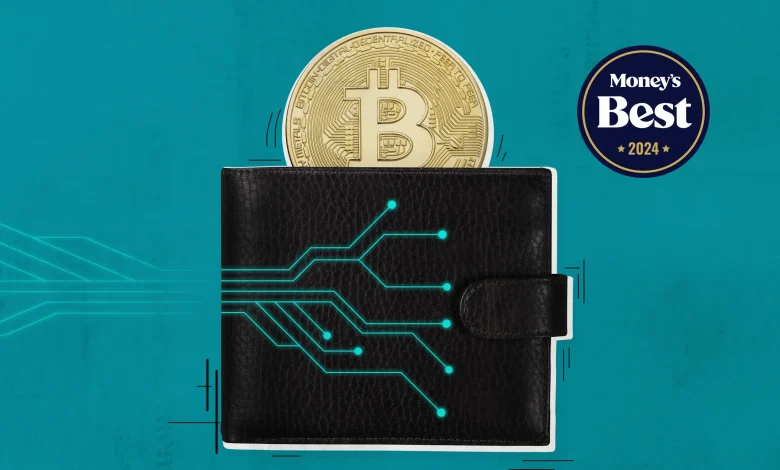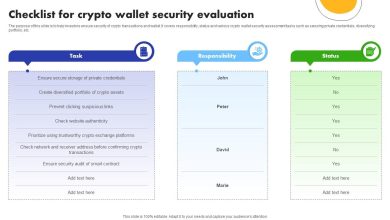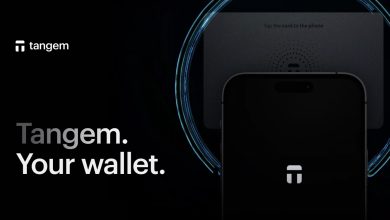Top 10 Cryptocurrency Wallets for 2024

- Introduction to Cryptocurrency Wallets
- Choosing the Right Cryptocurrency Wallet for Your Needs
- Security Features to Look for in a Cryptocurrency Wallet
- Top 10 Cryptocurrency Wallets for 2024
- Comparing the User Experience of Different Cryptocurrency Wallets
- Future Trends in Cryptocurrency Wallet Technology
Introduction to Cryptocurrency Wallets
Cryptocurrency wallets are digital tools that allow users to securely store, send, and receive cryptocurrencies. These wallets come in various forms, including hardware wallets, software wallets, and online wallets. Each type of wallet has its own unique features and benefits, catering to different needs and preferences of cryptocurrency users.
Hardware wallets are physical devices that store the user’s private keys offline, providing an extra layer of security against hacking and malware attacks. Software wallets, on the other hand, are applications or programs that can be downloaded and installed on a computer or mobile device. Online wallets are cloud-based wallets that can be accessed from any device with an internet connection.
When choosing a cryptocurrency wallet, it is essential to consider factors such as security, ease of use, and compatibility with different cryptocurrencies. Some wallets support only a limited number of cryptocurrencies, while others are more versatile and can store a wide range of digital assets.
In this article, we will explore the top 10 cryptocurrency wallets for 2024, highlighting their key features and benefits. Whether you are a beginner looking for a user-friendly wallet or an experienced trader in need of advanced security features, there is a wallet on our list that will suit your needs. Stay tuned to find out which wallets made the cut and why they are worth considering for your cryptocurrency storage needs.
Choosing the Right Cryptocurrency Wallet for Your Needs
When it comes to choosing the right cryptocurrency wallet for your needs, there are several factors to consider. The first thing to think about is the type of cryptocurrencies you plan to store. Some wallets are designed to hold only specific types of cryptocurrencies, so make sure the wallet you choose supports the ones you want to store.
Another important consideration is the level of security you require. Some wallets offer more robust security features, such as two-factor authentication or biometric verification, while others may be more basic. Think about how much you are willing to invest in security measures to protect your digital assets.
Ease of use is also a key factor to consider when selecting a cryptocurrency wallet. Some wallets are more user-friendly than others, with intuitive interfaces and simple processes for sending and receiving funds. If you are new to the world of cryptocurrency, you may want to choose a wallet that is easy to navigate and understand.
Finally, consider whether you want a hardware wallet, which stores your cryptocurrencies offline for added security, or a software wallet, which is stored online and can be accessed from any device with an internet connection. Hardware wallets are generally considered more secure, but software wallets offer greater convenience.
Overall, the best cryptocurrency wallet for you will depend on your individual needs and preferences. Take the time to research different options and choose a wallet that offers the features and security measures that are most important to you. By selecting the right wallet, you can ensure that your digital assets are safe and easily accessible whenever you need them.
Security Features to Look for in a Cryptocurrency Wallet
When choosing a cryptocurrency wallet, it is crucial to prioritize security features to safeguard your digital assets. Here are some key security features to look for in a cryptocurrency wallet:
- Encryption: Ensure that the wallet uses strong encryption methods to protect your private keys and transaction data from unauthorized access.
- Two-factor authentication (2FA): Look for wallets that offer 2FA as an additional layer of security to prevent unauthorized access to your account.
- Multi-signature support: Opt for wallets that support multi-signature transactions, which require multiple private keys to authorize a transaction, adding an extra layer of security.
- Backup and recovery options: Choose a wallet that allows you to easily backup and recover your wallet in case of loss or theft.
- Secure login: Make sure the wallet has secure login procedures, such as password protection and CAPTCHA verification, to prevent unauthorized access.
- Regular updates: Select a wallet that receives regular security updates and patches to address any vulnerabilities and ensure the safety of your funds.
- Hardware wallet integration: Consider using a hardware wallet for an added layer of security, as they store your private keys offline, making them less vulnerable to hacking.
- Open-source code: Look for wallets with open-source code, as they allow for transparency and community scrutiny, reducing the risk of hidden vulnerabilities.
- Security reputation: Research the wallet’s security reputation and user reviews to ensure it has a track record of keeping users’ funds safe.
By prioritizing these security features in your cryptocurrency wallet selection, you can better protect your digital assets and have peace of mind knowing that your funds are secure.
Top 10 Cryptocurrency Wallets for 2024
Cryptocurrency wallets are essential tools for securely storing and managing your digital assets. As we look ahead to 2024, it’s crucial to stay informed about the top cryptocurrency wallets available in the market. Here are some of the best options to consider:
1. **Ledger Nano X**: The Ledger Nano X is a popular hardware wallet known for its security features and user-friendly interface. It supports a wide range of cryptocurrencies and offers Bluetooth connectivity for added convenience.
2. **Trezor Model T**: Another top choice in the hardware wallet category is the Trezor Model T. It comes with a touchscreen display and advanced security features to keep your funds safe from potential threats.
3. **Exodus**: For those looking for a desktop and mobile wallet, Exodus is a great option. It supports a variety of cryptocurrencies and provides a built-in exchange feature for seamless trading.
4. **Coinbase Wallet**: Coinbase is a well-known name in the cryptocurrency industry, and its wallet offering is no exception. The Coinbase Wallet is a secure and easy-to-use option for storing your digital assets.
5. **Trust Wallet**: Trust Wallet is a mobile wallet that has gained popularity for its simplicity and security features. It supports a wide range of tokens and provides a built-in DApp browser for accessing decentralized applications.
6. **Atomic Wallet**: Atomic Wallet is a decentralized multi-currency wallet that offers strong security features and built-in atomic swaps for easy cryptocurrency exchanges.
7. **MetaMask**: MetaMask is a browser extension wallet that is widely used for interacting with Ethereum-based decentralized applications. It provides a convenient way to manage your ETH and ERC-20 tokens.
8. **MyEtherWallet**: MyEtherWallet is a popular choice for Ethereum and ERC-20 token holders. It is a non-custodial wallet, meaning you have full control over your private keys and funds.
9. **Guarda Wallet**: Guarda Wallet is a multi-currency wallet that supports a wide range of cryptocurrencies. It is available on multiple platforms, including desktop and mobile devices.
10. **Electrum**: Electrum is a lightweight and secure Bitcoin wallet that has been around since 2011. It is known for its speed and reliability, making it a top choice for Bitcoin users.
In conclusion, choosing the right cryptocurrency wallet is crucial for ensuring the security and accessibility of your digital assets. Consider the features and security measures of each wallet to find the one that best suits your needs in 2024.
Comparing the User Experience of Different Cryptocurrency Wallets
When comparing the user experience of different cryptocurrency wallets, it is essential to consider factors such as ease of use, security features, and available functionalities. Some wallets offer a simple and intuitive interface, making it easy for beginners to navigate and manage their digital assets. On the other hand, some wallets prioritize advanced security measures, such as multi-factor authentication and cold storage options, to protect users’ funds from potential threats.
Furthermore, the range of features offered by cryptocurrency wallets can vary significantly. Some wallets support a wide variety of cryptocurrencies, while others are more limited in their offerings. Additionally, some wallets provide additional services, such as built-in exchange platforms or staking capabilities, which can enhance the overall user experience.
It is also important to consider the customer support options available for each wallet. In the event of any issues or concerns, users should have access to timely and helpful support resources. Whether through live chat, email, or phone support, responsive customer service can make a significant difference in the overall user experience.
Future Trends in Cryptocurrency Wallet Technology
In the future, cryptocurrency wallet technology is expected to continue evolving to meet the growing demands of users. One of the trends that we can expect to see is the integration of biometric authentication methods, such as fingerprint or facial recognition, to enhance security and convenience for users. This will help prevent unauthorized access to wallets and provide an extra layer of protection for digital assets.
Another trend that is likely to emerge is the development of multi-coin wallets that support a wide range of cryptocurrencies. This will allow users to manage all of their digital assets in one place, making it easier to track and trade different coins. Additionally, we can anticipate the implementation of decentralized exchanges within wallets, enabling users to trade cryptocurrencies directly from their wallets without the need for a third-party exchange.
Furthermore, advancements in hardware wallet technology are expected to make storing cryptocurrencies even more secure. Hardware wallets store private keys offline, making them less vulnerable to hacking attempts. With the increasing focus on security in the cryptocurrency space, hardware wallets are likely to become more popular among users looking to safeguard their assets.
Overall, the future of cryptocurrency wallet technology looks promising, with innovations focused on enhancing security, convenience, and functionality for users. As the industry continues to grow and evolve, we can expect to see more exciting developments that will make managing and trading cryptocurrencies easier and more secure than ever before.



